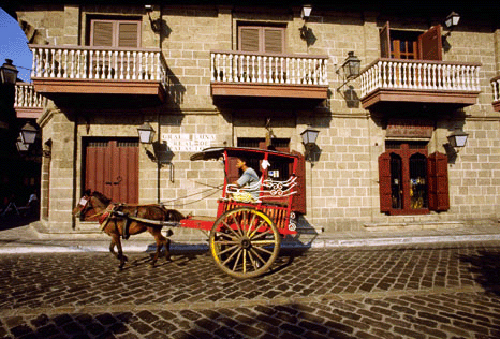Then when I arrived home, one of the maids told me that there was this newly grad chem student also from the Ateneo who's a contestant in Wowowee and whose mother is just a manicurist. In my most toneless and uninterested voice, i said: "how inspiring... pakibuksan na yung aircon sa kwarto... at anong ulam?"
We are all accustomed to financial inequality. It's everywhere! The rich marginalizing the poor, and although we rarely see it, the poor can actually marginalize the rich as well. This system of inequality has fucked up both sections of society.
High quality education has been seen as a society equalizer - so that the poor can have an equal footing with the rich. That's the ideal situation! But there's this thing called patronage system that's been embedded in our culture for centuries and breaching this system has been getting more difficult every year.

There is little social mobility unless you go out of the country and work there.
It's tragic to see these new set of graduates (from schools that claim to be universities) who ends up in jobs they are forced to take because they have no other choice. Blind optimism! It's more tragic to see students from (let's say) DLSU who graduated from AB Communications but because her family has no connections, she ends up in a call center firm. This is a true story from my blockmate whose family business hires call center agents.

Let's take a step backward and look at internships. Some students really have a hard time finding a company that would give them working experience. It's good if you're teacher is the HR head of a big company like Nestle or L'Oreal, like what's happening in school. It's even better if your family owns a company and you can put something like: "worked for 200 hours as assistant to the Operations Engineer for LAP Engineering and Construction." I surely can put that without lifting a finger and bluff my way through the interviews.

Should we abolish this patronage system? The better question would be: can it be abolished? This dates as far as the time when Taft would ask Pardo de Tavera who to appoint in government positions, even though the government is trying to pursue a professional system based on merit.
I'm not saying that patronage is the only way to reach the top. Although it's a dog eat dog world out there, there are still success stories of people who made it big! Just don't let this feeling be a blind optimism. If you ain't got the balls for it, you ain't going anywhere.





























